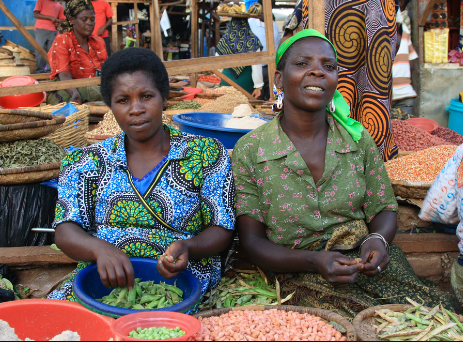What do you do when there are no jobs?
SURVIVE is what millions of people must do in Malawi and many other parts of the world everyday.
What do you do when there is no money coming into your home?
What do you do when there are no job?
What do you do when your stomach is ‘screaming’ out for something to eat - and your children are crying because they too can’t remember the last time their stomachs were full?
YOU MUST DO ANYTHING AND EVERYTHING!
Small business options - which would YOU choose?
1. Selling vegetables on the road. This involves sitting for long hours next to roads, displaying vegetables and waiting for passers-by to stop and buy.Only at the end of the day can money be used to buy essential items for their family to eat.
2. Market Stalls - Sit in local markets all day to sell peas and beans. A bag of peas costs around 200 Malawi kwacha or 20p and a bag of beans 500 Malawi kwacha or 50p. You need to makw soe profit from the sale so that each day you have some money to buy ufa, salt, tomato or usipa (tiny dried fish) and enough money to buy peans and beans to sell.
3. Retail - Selling clothes. A bale of second hand clothes costs around £120 to sell in a local market. Look how many people are doing the same thing. Competition is fierce, and prices leave very small amounts of profit for vendors. It can take a month to sell a bale of clothes and a profit of £20.
4. Self-Sufficiency - Grow vegetables. Most people that live in rural areas will spend hours each day in their garden growing vegetables. Even young children of 4-5 years old will help in the garden.
5. Sell donuts - The older lady makes fried donuts and the younger one will carry a plastic bucket and sell them in town, near mini bus stops and schools. Donuts cost 50 kwacha, that’s 5p. After they are sold the older lady keeps 2000 Malawi Kwacha (£2) for ingredients for tomorrow and 500 kwacha (50p) is given to the seller.


HOPE
Hope Africa is an International Christian Charity dedicated to bringing hope to people in Africa. We ask you to stand in prayer with us and to believe God for increase, opportunity and open doors to end sickness, disease and poverty.
AFRICA
Africa is a continent with 54 countries and with huge contrasts in levels of development and poverty. Malawi is one of the poorest countries with 50% of the population living below the poverty line and 25% living in extreme poverty.
CHARITY
Our vision is a world where everyone has access to safe drinking water; has food to eat every day and has access to education – so they can dream and hope for a better future. Our aim is to change one life at a time!
